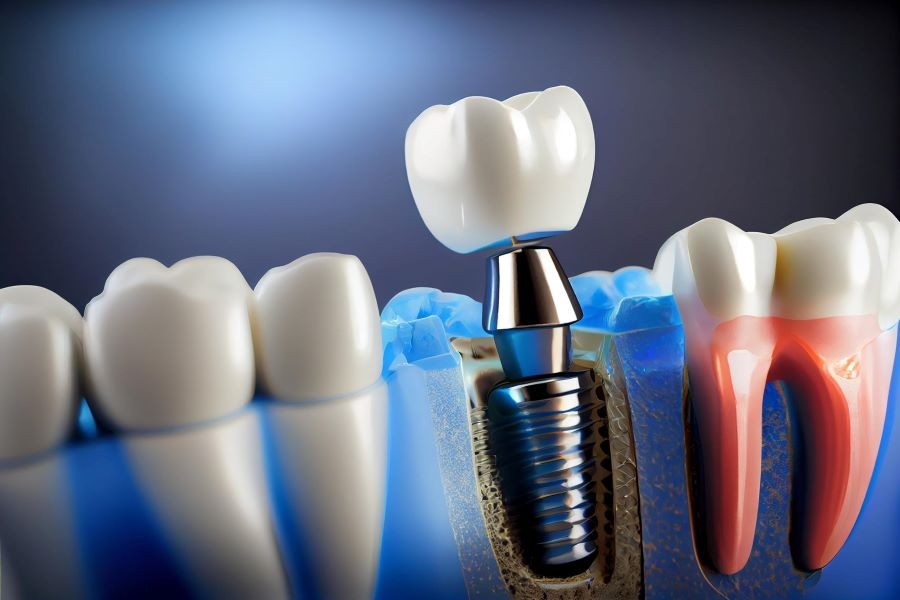
Dental implants
Dental implants are a surgical procedure used to replace missing or damaged tooth roots with metal posts, which act as artificial roots supporting a crown or dental bridge. This procedure is one of the most successful and effective options for restoring mouth function and the appearance of a smile. It is increasingly popular due to technological advancements in dentistry.
Steps of Dental Implantation:
-
Evaluation and Planning: The process begins with an assessment of the general condition of the mouth and teeth using X-rays and medical tests. The dentist determines the location and number of teeth to be implanted, taking into account the size and density of the bone available to support the implant.
-
Jaw Preparation: If there is insufficient bone, the dentist may perform bone grafting procedures to ensure a strong and stable foundation for the implant.
-
Implant Surgery: The procedure is typically performed under local anesthesia. The dentist drills into the jawbone and places the metal implant (usually made of titanium) into the bone. The implant is left for several months to allow it to integrate with the bone in a process known as osseointegration.
-
Abutment and Crown Placement: Once the implant has fully fused with the bone, an abutment is attached to the implant, and then a dental crown or bridge is placed on top, resembling a natural tooth.
Advantages of Dental Implants:
- Stability and Security: Dental implants offer high stability and do not slip, unlike traditional dentures.
- Natural Functionality: They restore the ability to chew and speak naturally.
- Aesthetic Appearance: Dental implants improve the appearance of the smile and help maintain facial structure by preventing bone loss over time due to missing teeth.
- Longevity: With proper care, dental implants can last a lifetime.
Risks and Challenges:
- Infection: As with any surgery, there is a risk of infection at the implant site.
- Implant Failure: In some cases, the bone may not integrate well with the implant, leading to implant failure.
- Nerve or Blood Vessel Damage: There is a potential for damage to surrounding nerves or blood vessels during the procedure.
In conclusion, dental implants are an excellent option for restoring missing teeth. However, their success greatly depends on choosing a skilled dentist and adhering to post-operative care instructions.




